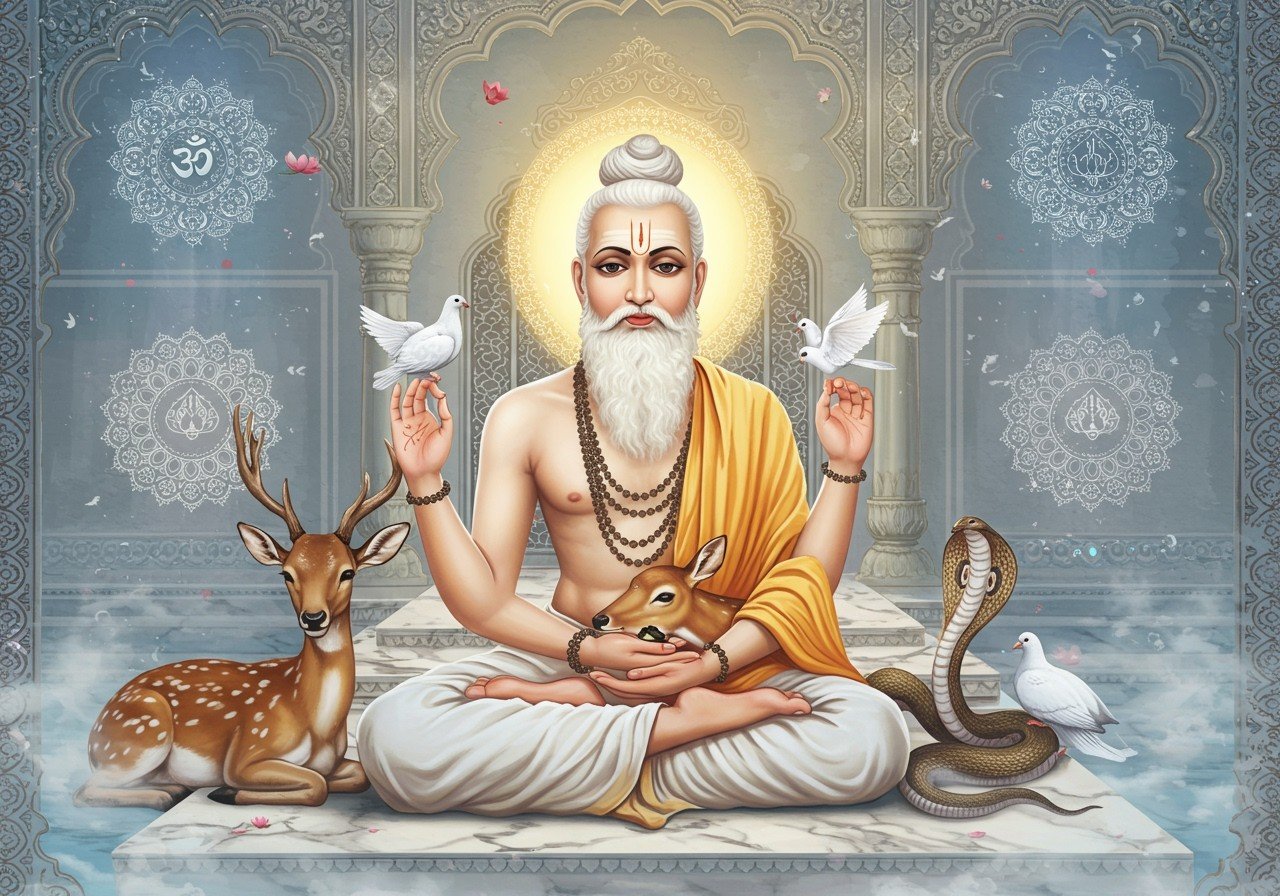
Jainism, an ancient Indian religion, centers around the profound philosophy of non-violence, known as Ahimsa. This principle permeates every aspect of Jain beliefs and practices, shaping their daily lives, rituals, and ethical framework. Understanding Ahimsa in Jainism offers valuable insights into cultivating a peaceful and harmonious existence. Ahimsa is a key virtue in Indian religions like Jainism, Buddhism, and Hinduism.
Historical Background
Originating in the 6th century BCE with Lord Mahavira, Jainism emerged within the socio-political landscape of ancient India. Key figures like Lord Mahavira significantly contributed to the development of Jainism, with ancient scriptures like the Agamas preserving Jain teachings on non-violence. Over time, Jainism spread across India, influencing other religions and philosophies, and the principle of Ahimsa became deeply ingrained in Jain doctrine.
The Principle of Ahimsa
Ahimsa, meaning non-violence, non-injury, and the absence of the desire to harm any life forms, is a cornerstone of Jainism. This principle guides Jains in their thoughts, speech, and actions. Jain monks take five major vows (Mahavratas), with Ahimsa as a central vow. For Jains, practicing Ahimsa is essential for liberation from the cycle of reincarnation, as violence (himsa) creates harmful karma, hindering spiritual purity. This principle influences practices such as veganism and vegetarianism among Jains. Ahimsa is considered the supreme religion and applies to thoughts, speech, and actions.
Everyday Applications
Ahimsa profoundly impacts the daily lives of Jains. Vegetarianism and veganism are common practices, minimizing harm to all living beings. The concept of ‘Jivdaya‘ (compassion for all living beings) is a practical extension of Ahimsa. Jains strive for harmony with nature, often participating in animal rescue and environmental conservation.
Social Interactions
Ahimsa shapes social interactions and community life within Jainism, fostering peace and harmony in relationships. Non-violence extends beyond physical actions to encompass mental and emotional non-harm. Jains are encouraged to speak kindly, think positively, and act compassionately, creating a supportive and caring community.
Aparigraha: Non-Possession
Aparigraha, the principle of non-possession or non-attachment, complements Ahimsa. It promotes a lifestyle free from greed and materialism, holding both ethical and spiritual significance in Jainism. Aparigraha encourages minimalism and sustainable living, fostering social equity and environmental conservation. It is essential for liberation from the cycle of reincarnation, as violence (himsa) creates harmful karma.
Practical Applications
Aparigraha translates into practical actions like living with minimal possessions and avoiding overconsumption. Jains often engage in charitable activities reflecting Aparigraha values. During festivals and rituals, the focus is on giving rather than accumulating wealth, promoting a balanced and fulfilling life.
The Role of Rituals and Daily Practices
Jain rituals embody Ahimsa and Aparigraha. Daily practices like meditation, prayer, and self-reflection reinforce non-violence. Specific rituals such as Paryushana and Diwali emphasize forgiveness and non-violence.
Rituals and Festivals
Paryushana is a time for Jains to seek forgiveness for any harm caused, intentionally or unintentionally. Diwali, for Jains, is a period of reflection on Lord Mahavira’s teachings, emphasizing non-violence. Community service and charity are essential expressions of Ahimsa and Aparigraha.
Compassionate Acts
Compassionate acts like animal rescue and environmental conservation are integral to Jain rituals, demonstrating a deep commitment to non-violence and minimizing harm.
Ahimsa in the Modern Context
Jain Ahimsa remains highly relevant today, addressing issues like violence, conflict, and environmental degradation. Jain principles contribute to global peace initiatives and conflict resolution.
Modern Lifestyle
In contemporary life, Ahimsa influences diet, consumer choices, and ethical business practices. Prominent figures like Mahatma Gandhi, inspired by Jain principles, championed non-violence globally.
Educational Initiatives
Jain organizations promote Ahimsa through educational programs, teaching younger generations about non-violence and compassion, ensuring the preservation of Jain values for the future.
How Poojn.in Supports Your Jain Practice of Ahimsa
Poojn.in offers a wide selection of items to support the Jain principle of Ahimsa in your daily religious practices. As India’s leading cultural goods and services store, we provide pure and authentic items aligned with Jain values:
- Pure cotton vastra (clothing): We offer a variety of pure cotton clothing items, avoiding silk and other animal-derived materials, respecting the principle of Ahimsa. Our collection includes traditional and contemporary styles suitable for all occasions. Explore our cotton vastra collection.
- Wooden and metal puja items: Our wooden and metal puja items are crafted without any animal products, adhering to Jain principles. We offer a wide range of items, from diyas and incense holders to statues and bells. Browse our puja items.
- Traditional Jain puja thalis: Find beautifully crafted Jain puja thalis made with respect for Ahimsa principles. These thalis are perfect for performing Jain rituals and ceremonies at home or in temples. Discover our Jain puja thalis.
- Chemical-free dhoop and incense sticks: Enhance your puja experience with our chemical-free dhoop and incense sticks, suitable for both Jain temples and home worship. These incense sticks are made with natural ingredients and are free from harmful chemicals. Shop our dhoop and incense sticks.
- Eco-friendly items: Choose from our selection of eco-friendly items that minimize harm to the environment, aligning with the broader Jain principle of compassion for all beings. We offer sustainable and ethically sourced products. Explore our eco-friendly products.
We meticulously source our products to ensure they meet Jain guidelines for non-violence. Our online platform provides convenient access to these items, respecting traditional values. Each product includes detailed information about materials and usage to help you make informed choices aligned with Ahimsa. For specific Jain ritual items or guidance, our customer service team is available at 91 7908548235.
Conclusion
Ahimsa, the core of Jain philosophy, guides individuals towards a life of compassion, non-violence, and respect for all beings. Practicing Ahimsa in thought, word, and deed cultivates spiritual purity and leads to liberation. Alongside Ahimsa, Aparigraha encourages minimalism and non-attachment, promoting ethical living and environmental conservation. Jain rituals and daily practices reinforce these principles, fostering a harmonious and peaceful community. In our modern world, Ahimsa offers solutions to global issues, influencing lifestyles, business ethics, and educational initiatives. Embracing Ahimsa leads to a more compassionate and balanced existence, reflecting the timeless wisdom of Jainism.


